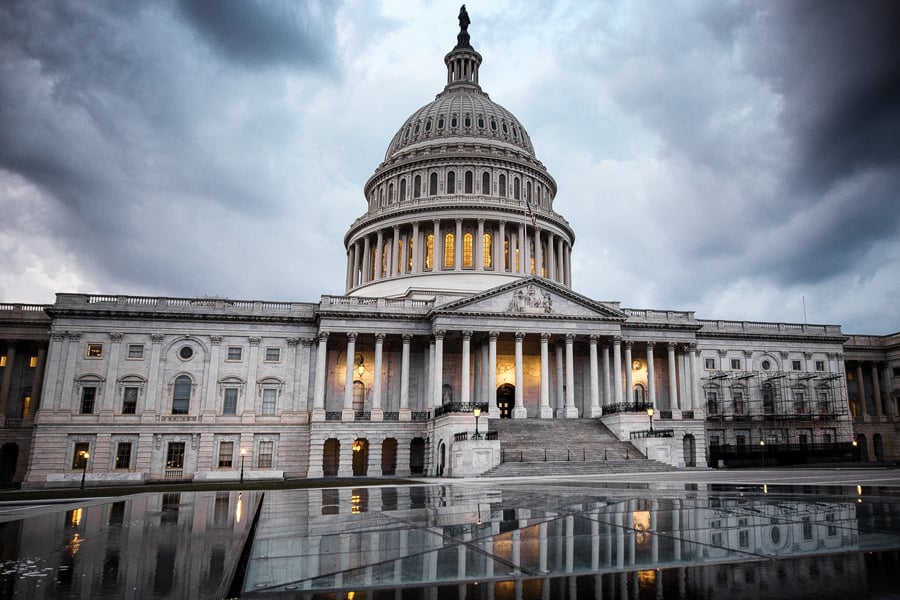

Protecting the independent contractor status of our financial adviser members is an ongoing area of focus for the team at the Financial Services Institute. With the continuing evolution of the gig economy, legislators around the country regularly launch proposals aimed at clarifying the line between "employee" and "contractor," most with the well-meaning goal of securing benefits and legal protections for gig economy workers.
In our industry, however, undermining the ability of financial advisers to work as self-employed contractors would be disastrous.
Independent contractor status is one of the bedrock principles of our industry, enabling advisers to tailor their service models and product offerings to the needs of their clients; employ tens of thousands of staff members as small business owners; and manage their own cost structures to profitably serve a broad range of investors. This business model has made professional, in-person financial advice accessible for millions of clients who might otherwise be turned away by the wirehouses.
Most attempts to rewrite the rules on independent contractor status originate with the states, such as with California’s AB-5 last year. However, a recent rule proposal from the Department of Labor would establish lasting protections for advisers’ independent contractor status at the federal level, providing unified guidance for both our industry and state lawmakers as to when the ‘contractor’ designation is appropriate.
In September, the DOL proposed amending the Fair Labor Standards Act to incorporate an "economic reality test" that would clarify the law’s definition of "independent contractor." Using this simple test, the FLSA would recognize that independent contractors are workers who, as a matter of economic reality, are in business for themselves as opposed to being economically dependent on the potential employer for work. We submitted a letter largely supporting this important clarification.
Unfortunately, there is also a pending legislative effort to weigh in on the issue at the national level -- and it displayed the same unworkable approach we’ve seen in many states, making no allowance for an independent financial services model that has improved the lives of Main Street American clients in meaningful ways for decades.
The Worker Flexibility and Small Business Protection Act, proposed earlier this year by Senate Health Committee Ranking Member Patty Murray, D-Wash., would extend the broad and simplistic three-part test for determining employment status defined in the FLSA -- known as the ABC test -- on a nationwide basis. (Some states currently apply a modified version of the ABC test or use a longer and more nuanced 20-factor test.)
At a high level, the ABC test requires that workers be free of control or direction by hiring companies; perform work that is outside the usual course of the hiring company’s business; and be customarily engaged in an occupation consistent with the work performed for the hiring company in order to be classified as an independent contractor.
This proposed bill would be a shift in the wrong direction for numerous reasons.
For one, some critics of the independent financial advice model claim that broker-dealers’ supervision of independent advisers for compliance purposes constitutes “control and direction,” thereby negating their independent contractor status under the ABC test. While a longstanding exception in the tax code makes clear that supervision for the purposes of ensuring compliance with securities laws does not represent such control, this exception is absent from the Senate bill -- meaning that the proposed legislation would be a significant step backwards when compared with existing law.
In the event that the Worker Flexibility and Small Business Protection Act were to move forward, we would urge leaders in the Senate and House to incorporate carve-out language for financial advisers into the bill, even if the DOL’s proposal to amend the FLSA were to be reversed or paused under the Biden administration.
Another obvious drawback of the bill is that it does not distinguish between industries. As I mentioned earlier, the unique flexibility of the independent advisory model has driven concrete, positive results for American investors that would simply not be achievable under any other approach. We and our coalition partners secured a carve-out from California’s AB-5 for independent financial advisers last year by making this clear and compelling case and, if Sen. Murray’s bill moves forward, we will work strenuously to ensure that similar protections are included in this legislation, as well.
After this month’s elections, the Senate appears poised to remain in Republican hands, meaning that the Murray bill is unlikely to advance. Our members should have every confidence, however, that if similar bills emerge in the future, we will be ready to fight back and to safeguard their independent contractor status.
Dale Brown is president and CEO of the Financial Services Institute.

President meets with ‘highly overrated globalist’ at the White House.

A new proposal could end the ban on promoting client reviews in states like California and Connecticut, giving state-registered advisors a level playing field with their SEC-registered peers.

Morningstar research data show improved retirement trajectories for self-directors and allocators placed in managed accounts.

Some in the industry say that more UBS financial advisors this year will be heading for the exits.

The Wall Street giant has blasted data middlemen as digital freeloaders, but tech firms and consumer advocates are pushing back.
Orion's Tom Wilson on delivering coordinated, high-touch service in a world where returns alone no longer set you apart.
Barely a decade old, registered index-linked annuities have quickly surged in popularity, thanks to their unique blend of protection and growth potential—an appealing option for investors looking to chart a steadier course through today's choppy market waters, says Myles Lambert, Brighthouse Financial.
